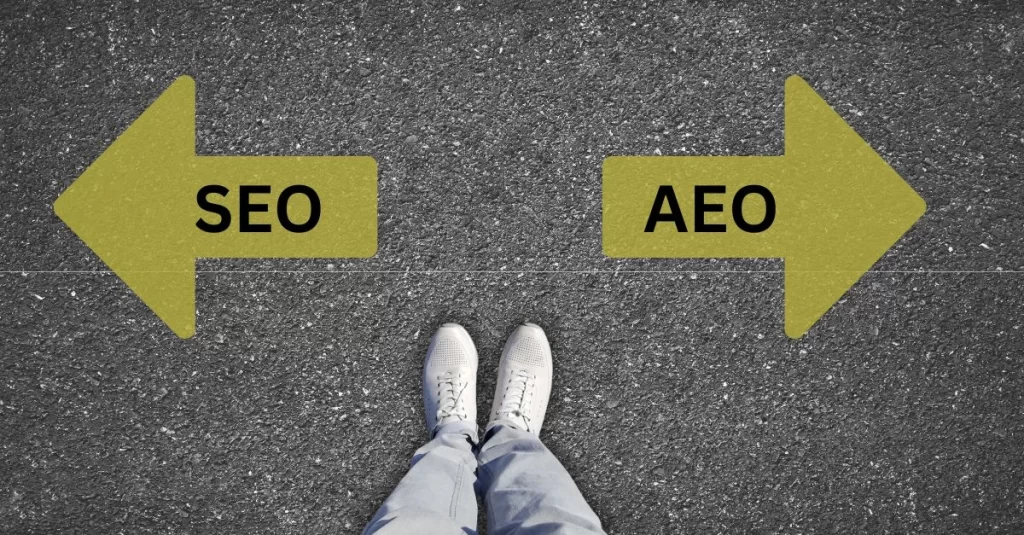Summary
In the constantly evolving world of digital marketing, search optimization techniques have come a long way.
Traditional search optimization techniques, which once dominated the online marketing landscape, are now being supplemented by newer and more holistic SXO strategies. One such emerging trend is Search Experience Optimization (SXO), which is the latest SEO technique to cover searches in a user-friendly manner while boosting conversions.
This blog dives into the essentials of search experience optimization via SXO in digital marketing, how it differs from traditional SEO, and why it’s crucial for businesses aiming to future-proof their online presence.
Key Takeaways
- SXO combines SEO, UX, and CRO techniques to deliver a superior user experience, higher search rankings, and increased conversions, i.e., complete search optimization techniques.
- It focuses on the user journey and not just on ranking high in the search engines.
- Search experience optimization is expected to dominate search optimization techniques in the coming years and is one of the major SEO trends 2025.
Table of Contents
⤷ What are the Main Components of Search Experience Optimization?
- Why is SXO Vital in Modern Search Optimization Techniques?
- SXO vs Traditional SEO: Which is Better for 2025?
- What are the 6 Benefits of SXO?
- What Metrics are used for Tracking Search Optimization Techniques done via SXO?
- How to implement SXO in 2025?
- Conclusion
- FAQs
If your business or marketing agency is looking to make SEO more user-friendly while boosting conversions.
We have got just the blog for you explaining about SXO, which is one of the most revolutionary search optimization techniques.
A few facts about search optimization techniques
- Second pages on SERPs get less than 1% user footfall.
- Around 59% of the users only click on a single page in the search results.
- Improving & updating your older web content can deliver up to a 260.7% traffic jump.
- Keep your content in Q&A format with answers less than 328 words, as that can get it featured in Google AI Overviews 99% of the time.
- By using informational content, the chances of aligning with user search behaviour are 52%.
What is Search Experience Optimization (SXO)?
Search Experience Optimization (SXO) is a blend of SEO and UX (user experience) strategies that aim to enhance both search engine rankings & the overall user experience on a website.
While SEO primarily focuses on ranking higher on search engines, SXO in digital marketing goes a step further.
SXO or search experience optimization ensures that users enjoy a smooth, relevant, and engaging experience once they land on a website.
What are the Main Components of Search Experience Optimization?
SXO brings together three key pillars of search optimization techniques:

Search Experience Optimization = SEO + User Experience + CRO
SEO
To ensure higher visibility, search experience optimization integrates robust SEO practices, including optimizing for voice search, video search, and EEAT (Expertise, Authoritativeness, and Trustworthiness) signals.
UX (User Experience)
Creating content that resonates with users is vital.
With SXO in digital marketing, the focus is on delivering content that’s not only relevant but also easy to read and interact with.
User feedback and behaviour tracking are crucial in refining the final experience.
CRO (Conversion Rate Optimization)
Testing & optimizing user interactions and conversion pathways are vital for improving outcomes.
Tools like heatmaps and session recordings provide actionable insights into user behaviour, allowing continuous improvement.
Together, these three form the foundation of search optimization techniques that are centered around user satisfaction, retention, and engagement.
SXO in digital marketing is thus a boon for your conversion & ROI (return on investment) goals.
Why is SXO Vital in Modern Search Optimization Techniques?
With the digital landscape constantly evolving, search optimization techniques must adapt.
SXO in digital marketing is becoming more and more vital because it integrates multiple strategies to improve both visibility & user engagement.
The search experience optimization boosts modern-day SEO via
1) Higher Rankings & Satisfied Users: Websites optimized for search experience optimization tend to rank better because they focus on delivering relevant as well as user-friendly experiences.
2) Boosted Engagement & Conversions: Engaged users are more likely to convert into customers.
By improving content quality and user interactions, SXO can increase engagement rates exponentially.
3) Brand Loyalty & Trust: A seamless user experience builds trust and loyalty, essential for retaining customers & encouraging repeat visits.
So, if your business has these three pointers as part of their objectives, then SXO in digital marketing is the way forward for your evolving SEO techniques.
SXO vs Traditional SEO: Which is Better for 2025?
Everyone is looking for the answers to this question, and we have made it easy for you to understand by having search experience optimization explained while comparing it with SEO.
The first and foremost reason why SXO is better is depicted in the image shared below.

Traditional SEO silos are getting streamlined as one under SXO.
With the basic comparison clear, let us dive deep into the nitty-gritties of SXO vs SEO so that your business makes the switch asap.
| Aspect | SXO (Search Experience Optimization) | Traditional SEO |
| Focus | Prioritizes both UX and SERP (search engine result page) rankings. | Focuses primarily on ranking in the search engines. |
| User-Centric Approach | Emphasizes personalized content, UX design, and conversion optimization. | User experience is a secondary consideration to search engine rankings. Although, as Google is making it a priority, SEO marketers are taking it under consideration. |
| Components | Combines SEO, UX, and CRO for a 360-degree SEO strategy. | Primarily focuses on SEO factors like keywords, backlinks, and technical SEO. |
| Measurement of Success | Success is measured through traffic acquisition, user engagement, and conversions. | SEO success is often measured in rankings, organic traffic, and CTR in an era where zero click searches are 70% of the total search traffic in 2025. |
| Adaptability to Trends | Highly adaptable, focusing on AI-driven insights, voice search, and future-proofing strategies. | Adaptation is slower, mainly focused on keyword optimization and backlinks. |
Search Experience Optimization vs SEO
As search optimization techniques continue to evolve, your business must future-proof your SEO with SXO to beat the competition.
While SEO focuses on ranking, SXO in digital marketing ensures that users find value once they click on a link, leading to higher engagement, better conversion rates, and long-term success.
Now with key differences clear, it is up to you to make the best business decision for organic traffic & visibility in 2025 and beyond.
What are the 6 Benefits of SXO?
Search experience optimization offers numerous benefits to digital marketers.
By integrating SEO with UX and CRO, it helps brands deliver a superior experience for users and achieve better results via the latest search optimization techniques.

6 Benefits of Search Experience Optimization (SXO)
1) Building Brand Advocacy
Positive user experiences lead to brand advocacy, with users recommending the website to others.
2) Improved SEO Efficiency
By combining SEO with UX and CRO, SXO or search experience optimization leads to more efficient & sustainable SEO strategies.
3) Data-Driven Optimization
With constant testing and data analysis, SXO in digital marketing allows for continuous optimization.
4) Better Cost Efficiency
Unlike traditional SEO, which may require ongoing paid ads for visibility and multiple resources, SXO helps maximize organic traffic and conversions via a single resource.
5) Higher Conversions
By optimizing the user experience and search visibility, SXO increases conversions and revenue.
6) Future-Ready Search Optimization Techniques
SXO is one of the most effective future-proof search optimization techniques, ensuring that businesses are ready for emerging trends in search engines and user behaviour.
What Metrics are used for Tracking Search Optimization Techniques done via SXO?
To measure the success of SXO in digital marketing, marketers need to track specific metrics that reflect both user experience and SEO performance.
Here are some of the key metrics:
Traffic Acquisition
Organic traffic acquisition is the first priority of search optimization techniques.
And search experience optimization or SXO can help you with it.
This goal can be tracked appropriately via
- Organic Traffic
- Organic Traffic Value
- Click-Through Rate (CTR)
User Engagement
User engagement is the second top priority, and SXO in digital marketing helps in achieving it effortlessly.
Use the below-mentioned metrics to track the growth in user engagement.
- Referral Traffic
- Engagement Rate
- Dwell Time
- Pages per Session
Conversions
Last but not least, conversions are the end goals for all consumer journeys, and search experience optimization helps with that as well.
Conversion growth can be tracked by the following metrics.
- On-Page Interactions
- Error Rates
- Goal Completions
- Conversion Rate
Bonus: User Behaviour & A/B Testing
We have also brought you bonus metrics for AI-ready search optimization techniques.
These metrics are essential tools for understanding how users interact with your site, ensuring you can refine your SXO strategy accordingly.
- A/B Testing
- Heatmaps
- Session Recordings
You can even use these metrics to track your SEO efforts as well.
It will help you see the areas where SEO lacks, and then switching to SXO will be easier.
How to implement SXO in 2025?
Here’s a step-by-step approach to implement search experience optimization for any brand’s online presence.

10 Steps to leverage SXO
1) AI-Driven Keyword Research
Use AI tools to identify high-value keywords and search intents for your business domain.
2)Focus on Content Quality
Create user-friendly, engaging, and valuable content because great user experience is a must-have feature in 2025.
3) AI-Powered Content Mix
Use AI to strategize content delivery based on user behaviour.
For example, if your users like to see rather than read, then switch to carousels, reels and videos. You can always link a long-form article at the end of it.
It will help those who like to skim or want information on the go, while those who like in-depth information will be catered to as well.
4) Optimize Website Schema
Implement structured data to help AI and search engines better understand your content.
Because if understanding your web content is easy for AI, then it will definitely be easier for humans.
5) Improve Navigation & Accessibility
Ensure easy navigation and mobile optimization because your target audience will have people of all ages & technical know-how.
So, making a website super navigable and accessible (audio prompts, magnification, keyboard operability & more) will help any business cover all of their user base.
Believe us, it will be a major ROI upgrade.
6) Internal and External Linking
Build a solid internal linking structure while gaining high-quality backlinks.
So that, your website has external proofs and recommendations which will boost your EEAT score.
And with internal linking keep the user journeys in motion while building topical authority (another EEAT boost).
7) Speed Optimization
Website speed is crucial for both UX and SEO.
Because no one likes to wait, or shall we say, no one has time to wait. Users want information and help in the form of your products & services asap.
8) Clear & Concise CTAs
Create clear calls to action (CTA) that guide users effectively to conversions.
9) User Testing & Feedback
Conduct A/B testing and gather feedback to improve UX & conversions.
10) Social Proof
Integrate reviews, testimonials, and other forms of social proof because it strengthens your brand image.
With these 10 steps of search optimization techniques, every brand can become the thought leader and garner immense profits without investing heavily in paid ads.
Conclusion
Search experience optimization is the next evolution of SEO, bringing together the best of search optimization techniques and user experience practices.
It’s clear that in 2025 and beyond, businesses that prioritize SXO in digital marketing will be better equipped.
Be it for higher rankings, maximum user engagements or superior audience conversions, search experience optimization delivers it all effectively.
Adapting to SXO in digital marketing is not just an option; it’s essential for staying ahead in the AI landscape.
Wondering if your digital marketing partner can deliver SXO?
Wildnet Technologies is a leading digital marketing company that delivers SXO, AI SEO, AEO, GEO and much more. Because our clients deserve the best possible AI-powered SEO services.
Need contractual SEO experts? We got that as well.
If you like to read more,
> Forget Just SEO: Use SXO, AEO, GEO & AIO for Full Visibility
> Content Marketing Strategy for AI Users – ChatGPT, Perplexity & SGE
> Wildnet’s Digital Yum (our weekly newsletter from the thought leadership’s desk about the latest in digital world)
Connect with us now at info@wildnettechnologies.com and experience the magic of SXO.
FAQs
FAQ 1. What is the importance of SXO?
Ans: SXO enhances visibility, usability, and conversions, ensuring users find exactly what they need, improving their overall experience.
FAQ 2. Which is Best: SEO vs SXO vs SGE?
Ans: SXO provides a more holistic approach, combining SEO, UX, and CRO for a better user experience & higher ranking.
While SEO is old & only targets click-through traffic, SGE (search generative experience) majorly targets AI search responses.
SXO, on the other hand, caters to both click-through and zero-click traffic by focusing on user experience, which every search engine needs.
FAQ 3. Why Do UX Signals Impact Search Rankings?
Ans: Google is prioritizing user experience signals in rankings, reflecting the importance of delivering an optimized experience.
They are doing it via the EEAT score, which measures user experience metrics mentioned above and more.
So, UX impacts search rankings a lot these days.
FAQ 4. How Do AI-Driven Searches Align with SXO in Digital Marketing?
Ans: SXO leverages AI to understand user intent & deliver personalized, fast, and relevant answers to user queries.
FAQ 5. Why is SXO the Future of Search Optimization Techniques?
Ans: SXO focuses on user experience, ensuring websites are optimized for both search engines and the people who visit them, which is essential for long-term success.







